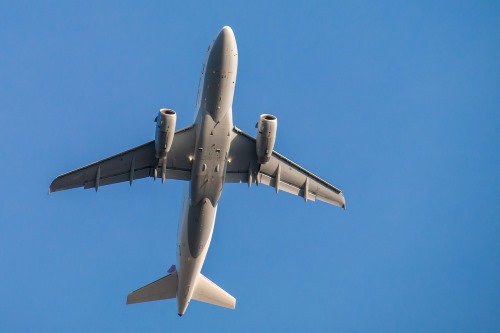Today’s guest post is by Helen Nichols, whose website Well-BeingSecrets.com focuses on health issues. This post is adapted from a longer article on her site about the health benefits of travel. It’s a well-researched piece complete with links to a variety of insightful scientific studies, reports and other documentation.
By Helen Nichols
Traveling has the potential to make us healthier, both physically and psychologically.
We may not be actively aware of it, but traveling can bring about substantive positive changes, which can take effect both during the course of travel and over the longer term.
Boosts Your Immunity
Travel helps strengthen your immune responses to bacteria, viruses, and other foreign bodies.
Of course, that doesn’t mean that you should be careless about hygiene and sanitation while traveling or put yourself at direct risk of getting ill.
However, when you visit new places, you naturally give your body the chance to interact with different particles, which leads to creating more antibodies (or proteins that fight against foreign bodies and protect you from the illnesses they can cause).
These antibodies make your body stronger over time, and protect you from similar illnesses in the future.
Research shows that immunity has much more to do with non-inheritable influences (such as environmental exposure) than with genetics.
The more you travel to new locations with new food, climates, and environmental flora and fauna, and the more exposed you are to different antigens, your body can stock up antibodies against them.

Keeps Your Mind Sharp
If you feel you’ve settled into the “same old routine,” your brain doesn’t have to deal with much new information and you won’t be able to give your mental faculties a workout.
But when you’re traveling — especially to countries or regions that significantly differ from your own — you’ll be exposed to a multitude of new information that your brain has to deal with.
Your daily schedule will be different. You’ll have to make new decisions all the time, such as navigating your way through different streets and different languages.
All this knowledge will help your brain build resilience against degenerative diseases at a cellular level as you age (2).
Encountering novel stimuli, which you do a lot during travel, will keep your mind young and improve your memory and concentration (3).

Lowers Stress Levels
And it’s true: traveling can help break the shackles of the tensions occupying your mind. Taking a trip away from your city and country will help refresh your mind and cool off the stress that eats away at your health.
When you don’t take a break from the everyday stressors, the amount of the stress hormone cortisol gets elevated; this speeds up the aging process and increases blood sugar levels.
This impact can later bring about many undesirable effects, such as inflammation, gastrointestinal problems, cardiovascular issues, and fertility problems. (4).
Surveys have shown that taking a vacation can help manage stress and negativity (5), which begin to disappear after only a day or two into a vacation (6).
Traveling allows your mind to relax and focus on experiencing new things, instead of overworking yourself or worrying.

Decreases Risk of Heart Disease
Heart disease generally refers to cardiovascular complications that arise from narrowed or blocked blood vessels, which can cause heart attacks, angina, strokes, heart defects, and other similar dysfunctions.
Many other factors can cause heart disease, so staving it off requires a balance of healthy nutrition in diet, exercise, and the avoidance of harmful toxins and injurious habits.
Stress can also be a huge factor behind heart disease, since it can lead to higher blood pressure and blood-sugar levels that gradually weaken the circulatory system.
Studies indicate that men who do not take a vacation from work for several years are much more likely than others to suffer from heart attacks (7).
A longitudinal study on heart disease also showed that women who took only one travel vacation every six years or less were more likely to suffer from myocardial infarction and coronary death, as compared to those who traveled each year (8).
Generally, you are more on the move and engaging in different physical tasks when you’re traveling, which provides at least a mild form of exercise that keeps your heart health strong.

Enhances Creativity
When you don’t allow yourself adequate exposure to novel stimuli, you may find that your creative powers begin to decline.
Therefore, creativity is closely linked to neuroplasticity (how the brain and its neural networks are organized).
Going to new places and experiencing new sounds, tastes, smells, sensations, and sights can lead the brain to form new neural connections (9).
For example, one study found that creative directors of fashion lines consistently produced more creative-design outputs if they spent more time abroad (10).
Another ran a series of tests, which demanded creative insights from participants. It found that those who traveled abroad and spent some time in different cultures were better overall at these tasks (11).
Traveling can help break the shackles of boredom or creative stagnation, and help provide the inspiration you need to get the wheels smoothly operating inside your mind again.
Especially if your work involves lots of creative thinking, a vacation to someplace new and different before might just be the inspiration you need to get your creative juices flowing again.

Improves Bone Health
When you travel, you tend to spend a lot of time outdoors. Therefore, you can absorb a great deal of sunlight, especially in a place with a warm climate.
The rays of the sun provide vitamin D, a need that cannot be met through the diet alone. Vitamin D stimulates the absorption of calcium and phosphorus in the digestive tract, and mobilizes bone calcium (12) — which is useful for maintaining strong bones.
Vitamin D3 has also been directly linked to bone health, since research has indicated that there is a definite correlation between vitamin D intake and decreased bone-density loss (13).
Osteoporosis, a problem that mostly affects individuals over the age of 35, is particularly common in menopausal women and the elderly.

Makes You Happy
Traveling is a great way to immerse yourself in something new and exciting, and it gives you something to look forward to.
If you go places you’ve always wanted to visit, take some time to explore what these places have to offer, and build a repertoire of fond memories for the future: It will help keep your happy hormones (dopamine and serotonin) flowing.
This conclusion isn’t just based on general or anecdotal reasoning: plenty of research correlates happiness with travel.
One study has found that the anticipation of a planned holiday can increase happiness and emotional equilibrium (14).
Another has found that the thought of making experiential purchases (such as a trip) gives people more joy than the thought of material purchases, such as clothes or electronics (15).
The value of such experiences can be immense, and can lead to greater contentment over the long term.

Helps with Weight Loss
Many jobs require you to be in an office sitting down most of the time — and few jobs actually involve physical activity to the extent that it can adequately burn extra calories.
Because of time constraints, regularly going to the gym or exercising on your own may not be a possibility.
While the effects may only be short-term, traveling can give you a big weight-loss boost.
The extent that traveling has on a person’s weight varies from person to person, and it also varies based on what kind of activities the trip consists of.
But traveling usually involves a mixture of different activities, including sightseeing and, sometimes, adventure sports. A trip with a lot of walking or activities (such as hiking, rock climbing, or mountaineering) will clearly be more beneficial in this regard.
One study on obese people found that merely visiting a high-altitude location without exercising led to weight loss in just one week (16) — probably due to changes in metabolic and satiety levels while decreasing hunger.
Another study shows that a cold climate can help burn calories and ‘brown fat,’ which in turn escalates the burning of ‘white fat’ (17).
And if you’re already living in a cold climate, visiting someplace warm might encourage more physical activity (18).

Strengthens Personal Relationships
When you travel with others, it can offer you a bonding experience that strengthens your relationships.
For couples, it can be an effective way of creating new experiences, which adds value and meaning to the relationship. According to a survey, many couples feel an overall increase in their perception of closeness and shared interests with their partners after traveling together. These couples reported a higher satisfaction out of their relationships, and were much more likely to report better communication (19).
Other studies indicate that leisure activities with family, such as traveling, can increase a sense of connectedness between family members, including children and their parents (20).
An extensive review of literature on the effects of traveling also concludes that using travel as a means of connecting with family members reduces the chances of divorce, improves senses of well-being, and enhances the quality of bonds among members (21).
This impact is especially helpful if a couple or family doesn’t have much time or opportunity for partaking in joint activities together at other times.

Deepens Your Empathy
Here’s a wonderful aspect of traveling: along the way, you will usually encounter many different people.
At the end, you may leave with new friends and acquaintances — or at least with some new memories of people.
That’s why traveling, especially to places that are geographically or culturally distant from you, can have a huge effect on your ability to empathize.
Interacting with strangers, sharing experiences, and recognizing commonalities can all drive a sense of bonding and understanding.
This ability to empathize and connect with others will be useful whether in the workplace or in your personal life.

Reduces Risks of Depression and Anxiety
While there’s no telling if any event in the future may trigger a depressive episode, it is generally true that leading a healthy, well-balanced life can go a long way toward controlling depression.
Traveling presents the opportunity for you to take a breather from the business of day-to-day life, and focus on yourself and your emotions.
According to one study, women who took vacations were much less likely to suffer from depression and other mental health issues, and subsequently enjoyed a higher quality of life (24).
Specific types of locations, such as calm forests or mountain environments, have been shown to be effective at lowering rates of psychologically stress-related diseases (25).
Similarly, warm climates and sunlight have a positive effect on depression (especially seasonal-affective depression), since light can regulate melatonin and hormones, such as dopamine and serotonin (26, 27).
Improves Respiration
Consider living in a city or town: commuting on and navigating congested streets. While you may not actively realize it, your respiratory system might be struggling because of pollution.
From car fumes to smoke to industrial pollution to dust, there could be many air pollutants gradually deteriorating your lungs and making you more and more vulnerable to diseases and conditions, such as asthma, bronchitis, and lung cancer (28).
By traveling to places that are far away from industrial setups or urban pollution, your lungs detoxify, and you’ll recover to a healthier state.
More specifically, traveling to a region near an ocean or sea can do wonders for your lungs. This concept isn’t new: For more than 200 years, people have been visiting oceansides and salt baths to recover from various ailments.
And scientific studies have also established that inhaling sea air can help overcome cystic fibrosis (a buildup of thick mucus that clogs up the lungs) (29) and lung disease (30).
Breathing in ocean air has been shown to thin out mucus, reduce coughing, decrease sinus pressure, and improve lung function.

Eases Digestive Problems
Since digestion is controlled by the enteric nervous system — essentially creating a gut-brain axis that can create a change in the way one affects the other — stress can wreak silent havoc on your digestive system.
It can essentially shut down the blood flow to your system, decrease the secretions needed for digestion, and affect the contraction of digestive muscles.
Symptoms can include esophageal spasms, nausea, diarrhea, or constipation (31).
Other problems directly result from the effect of stress on digestion are lowered immunity (since the absorption of nutrients and immune response are closely linked) and an increase of bad gut bacteria in relation to the good ones (32, 33).
Limiting stressors and inducing a relaxed state of mind during travel can help relieve these problems (34). Taking time to do away with stress can also help you avoid chronic gut inflammation (35).

Improves Your Skin
Does your skin feel unhealthy? Is it prone to breaking out in spots or acne, or does it look dull and lifeless?
There are many reasons why your skin could be acting up in this way, including stress and pollution.
Stress can lead to the excess production of cortisol, which then leads to the excess production of sebum and causes your skin to break out and feel greasy. It can also aggravate skin conditions, such as psoriasis, eczema, and rosacea.
A good vacation can help overcome stress and consequently relieve or prevent such skin issues.
By going somewhere that calms you, such as a coastal area or the mountains, your skin can start to recover its original quality.
If you travel to a beach, the quality of your skin might improve thanks to the exfoliating quality of sand and sea salts, along with the ability of saltwater and iodine to detoxify your skin and get rid of breakouts that cause bacteria and fungi.
Also, swimming in the magnesium-rich ocean water can hydrate your skin much better than tap water, and it can reduce skin roughness and inflammation (36).
If not the beach, just traveling to a place with low levels of air pollution can help your skin renew itself.
Particles in the air caused by traffic and fumes (such as nitrogen dioxide and smoke) can set off extrinsic skin aging and spotting, and it can clog up pores and increase bacterial buildup (37).
Travel to places with serene air quality, and see how it transforms your skin!

Boosts Confidence
Most times, traveling isn’t just about discovering new places and cultures. It’s also about discovering yourself.
In unfamiliar territory, you are best-suited to evaluate your own thought development, and a trip usually ends with an increased sense of understanding about yourself and who you are.
If you have the opportunity to go somewhere that you don’t feel the pressure to put on a façade or feel external societal constraints, you can take a wonderful step towards developing better self-esteem.
Furthermore, traveling alone or with peers as an adult can mean that you’re in charge of decision-making and making your way around a foreign location, which helps you regain your confidence and reduces minor anxiety.
Aids Sleep
Establishing a good sleep pattern can be difficult. Sleep is so centrally important to overall health and well-being, and a deficiency can cause all sorts of problems, from cognitive disorientation to irritability.
There are several reasons why travel can help you sleep better.
While traveling, you’re less likely to spend time on electronic gadgets, such as your smartphone or laptop. When used close to bedtime, the light from such devices can cause melatonin suppression by convincing your brain that it’s dark and time for bed (39).
Spending time on other activities, and spending time outdoors in natural sunlight during the day, can actually help your circadian rhythm regulate itself.
That way, you’ll have no trouble falling asleep, and are up and energized the next day (40).
It is also generally easier to sleep when you are less stressed, which is one of the biggest benefits of traveling (41, 42).
Getting exercise by walking and carrying out other activities during traveling can also improve the quality of sleep.

Facilitates Adaptability
In our day-to-day lives, we are rarely challenged to think or act differently than we normally do. We operate routinely, and very seldom come across something that forces us to navigate situations outside of our comfort zones.
But traveling to unfamiliar territory does the opposite: it challenges you to adapt to an entirely different culture, often around people you don’t know very well. This is especially true if you’re visiting someplace where your mother tongue is not in common practice, and culture and lifestyle substantially differ.
By immersing yourself in the local way of living, you can help your brain shed its rigidity and become flexible enough to adjust to different circumstances as needed.
This skill can prove to be very useful in your professional and personal life, as you will be better equipped to deal with changes in an effective, positive way.
Increases Iodine Levels
If you love visiting coastal areas and swimming in sea water, you’ll be glad to hear that there’s another benefit of it: Iodine can be consumed through regular food sources, but swimming in sea water or eating marine plant and animal dishes can give you that extra boost.
Iodine influences how thyroid gland functions are directly involved in regulating hormones and metabolism (43). Iodine can also improve immunity and aid in apoptosis (or programmed cell death), which destroys malignant and destroyed cells before they multiply and become a problem.
They can also cause apoptosis of carcinoma cells, which is one of the reasons why sufficient iodine can prevent certain cancers (44).
And iodine can also help prevent thyroid disease and goiter (45).

Helps Your Muscles
While many of us spend a great deal of time just sitting or working, human bodies haven’t been designed to just sit still for such long periods.
A lack of sufficient movement tightens the muscles along the hips, causing spinal deterioration and pain. Your abdominal muscles also slowly degenerate, since you don’t use them while sitting (46).
While traveling, you tend to be more physically active and are getting enough exercise to help your muscles develop nicely, without tightening them due to inactivity.
Going to an ocean can be especially helpful for muscles, since sea salts can help relieve sore and aching muscles, and reduce inflammation in the joints (47).
Enhances Healing Properties
Both emotionally and physically, traveling is the best remedy if you’re searching for a way to detox.
Whether you’ve had a negative period in your life, feel like life has been insipid of late, or are grieving or heartbroken, traveling can help you slowly let go of the past and renew your spirit.
By visiting the lands of your dreams, trying out new foods, and meeting new people, you can distract yourself from the past and steady your focus towards the future.
We know how traveling can greatly enhance your mood and happiness, and it can signify a new phase in your life.
Traveling to a tranquil environment can gradually help your body filter out all the wastes and toxins, and leave you feeling healthy and reinvigorated.

Improves Libido and Fertility
Lowered libido is a common yet under-discussed health issue for many couples, and oftentimes, the cause behind it is murky. But sometimes, the answer is as simple as lowering stress.
Stress can hamper the sex drive in both men and women (50), and traveling can help you improve on that front as well.
In fact, more than a million respondents to one survey said that traveling improved their libido (51).

Expands Knowledge and Perspectives
Studies have demonstrated that traveling internationally can actually have major impacts on personality, and that sojourners can develop new values and understanding from travel (52).
One possible reason may be that when you travel, you’re no longer living inside the microcosm of your local community.
Traveling exposes you to many different kinds of people and communities, and opens your eyes to the realities and expectations of other people around the world.
As you travel, you become more educated about the different histories and traditions of places and people, which helps broaden your understanding of the world. You may realize that your prior assumptions were too simplistic or incorrect.
Nothing can really be as impactful as making observations and conclusions for yourself.
Experts also claim that traveling makes you more open to other people, and creates a generalized trust or faith in humanity (53).
Keeps You Feeling Young
Research shows that traveling can have the benefit of making people feel more youthful and healthy.
In a way, travel can be considered medicinal, since it promotes brain health and protects resilience in the aging and elderly.
Those who travel have been shown to have a reduced risk for developing diseases, such as Alzheimer’s and dementia (54, 55).
Traveling is a great way to be active and engaged with living and experiencing different things, even after you reach a certain age.

Improves your Ability to Work
Traveling provides a good deal of delight when you’re actually doing it, but what about when it’s time to return home and start tackling goals and deadlines?
The evidence points to the suggestion that regularly traveling actually improves productivity and work performance.
We already know how traveling spruces up your brain and its ability to carry out cognitive tasks, so that’s one possible reason.
Another is that settling into a mundane pattern of lots of work and little play can make you feel jaded and demotivated, which can be overcome by traveling (56).
One study found that recuperation from high levels of pre-vacation work strain was successful when the trip was organized in such a manner that the vacationers got to enjoy free time, lots of sun, exercise, and the opportunity to form new acquaintances (57).
Other studies show that vacations can provide a respite from strain and relief from burnout (58), which decreases absenteeism and low energy at work (59).
Precautions
While traveling has many merits, in some cases it can also be harmful to your health.
Traveling should ideally help eliminate stress, not cause it!
Before traveling, do some research to ensure that viral breakouts aren’t occurring at your destination. Make sure that you are adequately vaccinated for your destination as well.
Be smart about what you pack or carry while traveling: be sure to include essentials, such as sunscreen. (And apply it religiously. While the sun offers many benefits, it can also be dangerous without protection.)
Also take bug repellant, necessary medications, and clean drinking water, and leave behind highly valuable items as much as possible.
Make sure that the food you’re consuming is hygienic, and that you’re always following proper sanitation rules, no matter where you are.
Before tackling adventure sports, make sure you know the risks and can safely pursue them.
If you’re already suffering from an illness that makes it difficult to move around, it might be easier to find more convenient solutions right at home, instead of risking your already fragile health even more.
And last, to ensure you aren’t putting yourself in danger while traveling, always be aware of yourself, your belongings, and your surroundings!
Author bio: Helen Nichols is a passionate health junkie with a degree in Nutritional Science, who loves learning and sharing her knowledge about nutrition, well-being, fitness and other topics. You can read many more of her health-related pieces at her excellent website well-beingsecrets.com.












One Response to Travel to Be Healthier in Body and Mind? Yes!